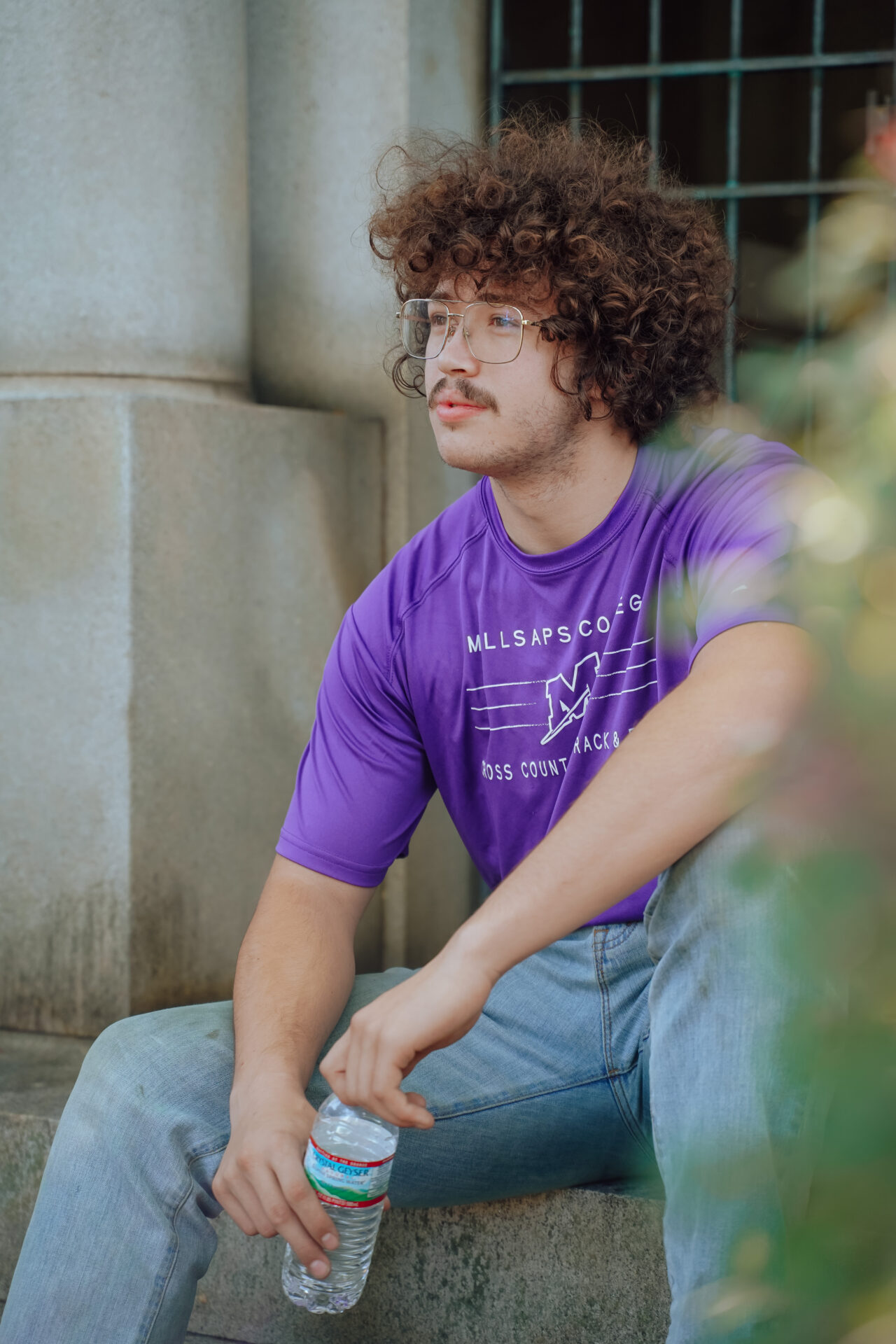Extras News
Water Crisis 2022: The Price of Ice

By Xenia Minton

Jakob Myers-Heldt wears a Millsaps track and field T-shirt and sits drinking out of a plastic water bottle. The curly-haired 20-year-old sighs when thinking about the state of Jackson’s water.
“I’m from a place where we’ve been in a drought for 30 years, and we have better water than here,” says Myers-Heldt, a junior from Albuquerque, New Mexico.
He is concerned about the impact of the water crisis on out-of-state college students. Many, like Myers-Held, came to Millsaps College to experience college away from home and family, but few could have envisioned what was to come.
“For the water crisis to hit in the second week of the fall semester when you’re getting the vast majority of freshmen is some of the worst luck I think Millsaps, Belhaven, and JSU could have collectively,” he said.
Myers-Heldt double majors in government and politics and Greek and Roman studies. He serves as the president of his fraternity, Lambda Chi Alpha, and throws discus and javelin on the Millsaps Track and Field Team.
Since eighth grade, Myers-Heldt studied technical theater and worked multiple live events, traveling around central Mississippi setting up for different places and learning the ropes about technical equipment. He has just about done it all, and recent events in Jackson have brought even more involvement opportunities.
The Jackson water crisis has impacted every local, especially the college students who reside in town. Myers-Heldt took action and researched the water crisis this past summer while working for the Mississippi Association of Educators as a research and government relations intern. He spent about a month doing dedicated research, and he learned more than he wanted to about the consequences of this water crisis.
“It was honestly anxiety-inducing at times,” said Myers-Heldt. “Learning more about the quantities of lead in the water, the propensity to failure that the Jackson water system has as a whole, and the way that that can exacerbate things like contamination, biofilms, and lead was a lot.”
His research connected to the previous ice storms that had occurred in the city. Myers-Heldt was not expecting the city to shut down two winters ago, and he associated the freeze to the poor state of the water system.
“Shut the city down sounds like hyperbole. It wasn’t,” said Myers-Heldt.
The city had no water for three weeks and then no drinkable water for another three subsequent weeks. Myers-Heldt’s research this summer discovered that there was never really drinkable water. The Millsaps student believes that since 2012, some authority within Jackson and the various monitoring agencies involved has known that the O.B. Curtis Water System is screwed.
“There weren’t enough qualified people to work at the O.B. Curtis Water System who really knew what was going wrong to actively step in,” said Myers-Heldt.
Myers-Heldt described that the water system draws from the reservoir, which is really acidic. The calcification quickly eroded once the city switched from well to reservoir water, as it had already built up so much in the aged pipes. The service lines that transport water from the distribution lines to the facility used lead.
He has expressed concern for how residents will get by, and solution proposals such as creating independent wells have come into picture. Millsaps aims to create a new water system by digging a well. Myers-Heldt anticipates the well installation will make the university functionally independent when it comes to drinking water–a multimillion dollar project, which he hopes the school succeeds with. Construction has already started.
“But even if there was an independent well for all of these public schools, which would be many millions of dollars, kids still go home and they still have to cook, bathe, and brush their teeth,” said Myers-Heldt. “This water crisis drives people away.”
There is still so much to be done, but Myers-Heldt has been and continues to be on the case of helping Jackon’s water crisis. Right now, he’s gathering information and helping coordinate MAE’s Safe Water Campaign for the City of Jackson.
“If you look at the census, you’ll notice that the population of Jackson has decreased by 20,000 over the last ten years. This is a factor,” said Myers-Heldt.


















































